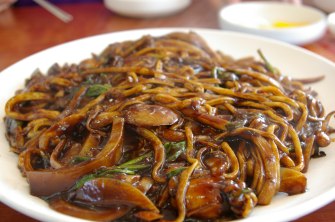Valentine’s Day in South Korea: A delightful and complicated social game
Written by Sneh Chaudhry on February 9, 2022
Like in Fiji, February 14th is celebrated as Valentine’s Day in South Korea. But in South Korea, Japan and Taiwan, only women give gifts. Traditionally, women give men chocolates as a sign of affection. And rather than be economical with their purchases, women may actually benefit by spending a lot on men. How? A month later, on March 14th, her man will reciprocate on so-called White Day when he is expected to observe the ‘Rule of Three‘ and reciprocate with a gift three times the value of what he received in February.
But in South Korea, Japan and Taiwan, only women give gifts. Traditionally, women give men chocolates as a sign of affection. And rather than be economical with their purchases, women may actually benefit by spending a lot on men. How? A month later, on March 14th, her man will reciprocate on so-called White Day when he is expected to observe the ‘Rule of Three‘ and reciprocate with a gift three times the value of what he received in February.
:max_bytes(150000):strip_icc()/presents-57d5ba613df78c58335b13a3.jpg)
That means he has to spend three times what she spent on him. And not only can he give candy, but also flowers, stuffed animals, lingerie and even jewellery. How he responds signifies what he thinks about the relationship. If he doesn’t give her a present, it means he thinks he’s above her. While if he gives a gift of equal value, rather than go to the power of three, the relationship is over.
These days, on Valentine’s Day, a woman will buy chocolate for colleagues and friends as well, but will make a distinction between courtesy chocolate and the ‘chocolate of pure love.’ If the confection is handmade (or expensive), that’s a sign. But she’ll have to wait an entire month for her reply.

While Valentine’s Day is a Western import, White Day originated in Japan decades ago confirming that the West isn’t the only part of the world to suffer from industry-generated holidays. In 1977, a Japanese confectioner named Ishimura Manseido proclaimed March 14 to be ‘Marshmallow Day’. While that didn’t exactly catch on, the National Confectionery Industry Association gave it a twist. They offered White Day and it stuck, offering men a chance to ‘reply’ to the gifts given on February 14th. The white symbolizes the purity of love but is also associated with sugar.

Another important aspect of White Day is imperative to interweave the colour white into gifts as much as possible. That could mean giving white chocolate or wrapping presents in fancy white packaging. The more the colour white is used, the better. In a region that finds it difficult to talk about feelings, such expressions say a lot. And of course, there’s an element of keeping up with the next couple. Knowing this, retailers frequently advocate for both genders to give gifts on both days.
In case somebody doesn’t receive a gift on Valentine’s Day or on White Day, South Korea has a solution to bruised hearts. Called Black Day, singles get together with their single friends, go out to a Chinese-Korean restaurant and eat a steaming pile of black noodles (자장면 jajangmyeon). It’s basically Chinese noodles in a black bean-paste sauce. It’s extremely tasty. Although it’s called Chinese food, black noodles are solely found in Chinese-Korean establishments, just as egg rolls, chop suey, and General Tso’s Chicken are only found in American ones.

Originally, Black Day was a time for singles to get together and cry in their favourite comfort food. There’s a lot of pressure on 20-somethings to get married and have children. So Koreans feel sad not merely for being single but because they haven’t fulfilled their social obligation, which is really important in East Asian cultures. Some go as far as wearing black on that day, and some women even wear black nail polish.







